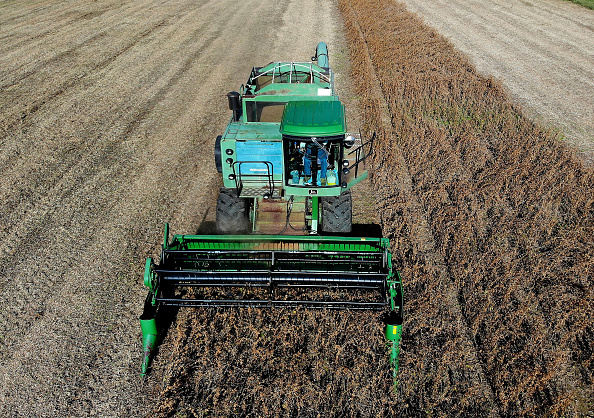The coronavirus pandemic is affecting nearly every American, but one group is particularly hard hit: farmers.
Just as Covid-19 is more likely to kill when a patient has other health problems, farmers who were already battered by President Trump’s trade wars are now suffering even more due to widespread stay-at-home orders and restaurant shutdowns.
The outbreak has produced a “catastrophic” situation, says John Newton, chief economist of the American Farm Bureau Federation (AFBF).
“It seems like we’re fighting a battle on all fronts right now,” Newton told Axios.
“Uncertainty overwhelmed the agriculture sector in 2019 as farm debt hit a record high and … family farmer bankruptcies rose by the most in eight years, up 20% from the previous year,” Axios says.
Farmers and ranchers are due to receive $16 billion in direct government support, but “industry groups’ anticipate losses will far exceed that total: beef producers will lose $13.6 billion; pork producers, $5 billion; the dairy industry, $2.85 billion. Corn, soy, sorghum and cotton growers, as well as chicken farmers, also foresee huge losses.
All of which heightens concerns about the whole U.S. food supply.
The pandemic “has upended food supply chains, led to closures of meat producing plants and left Americans with the unsettling experience of seeing empty shelves at supermarkets,” reports The Hill, citing major challenges that lie ahead in five areas:
Processing plants and slaughterhouses, where workers may stand in close quarters to prepare food and meat for delivery to grocers.
Foreign farm workers, vital to the U.S. agricultural sector for planting and picking crops, who are delayed or blocked by Trump’s immigration policies.
Supply-chain mismatches, largely caused by restaurant shutdowns, which have already forced farmers to dump billions of dollars worth of fruit, vegetables and milk.
Food insecurity, felt by tens of millions of Americans even before the virus outbreak and now growing rapidly amid skyrocketing unemployment.
Limited delivery capacity, caused by social distancing, self-quarantining and illness among workers all along the food chain.
“There will be enough food produced on the farm,” Zippy Duvall, president of the AFBF, recently told USA Today.
But “there’s a lot of things that happen to the food before it gets to the consumer, whether it be in processing or transportation,” he added. “If this thing was to get worse, what problems come along with that? None of us really know.”



